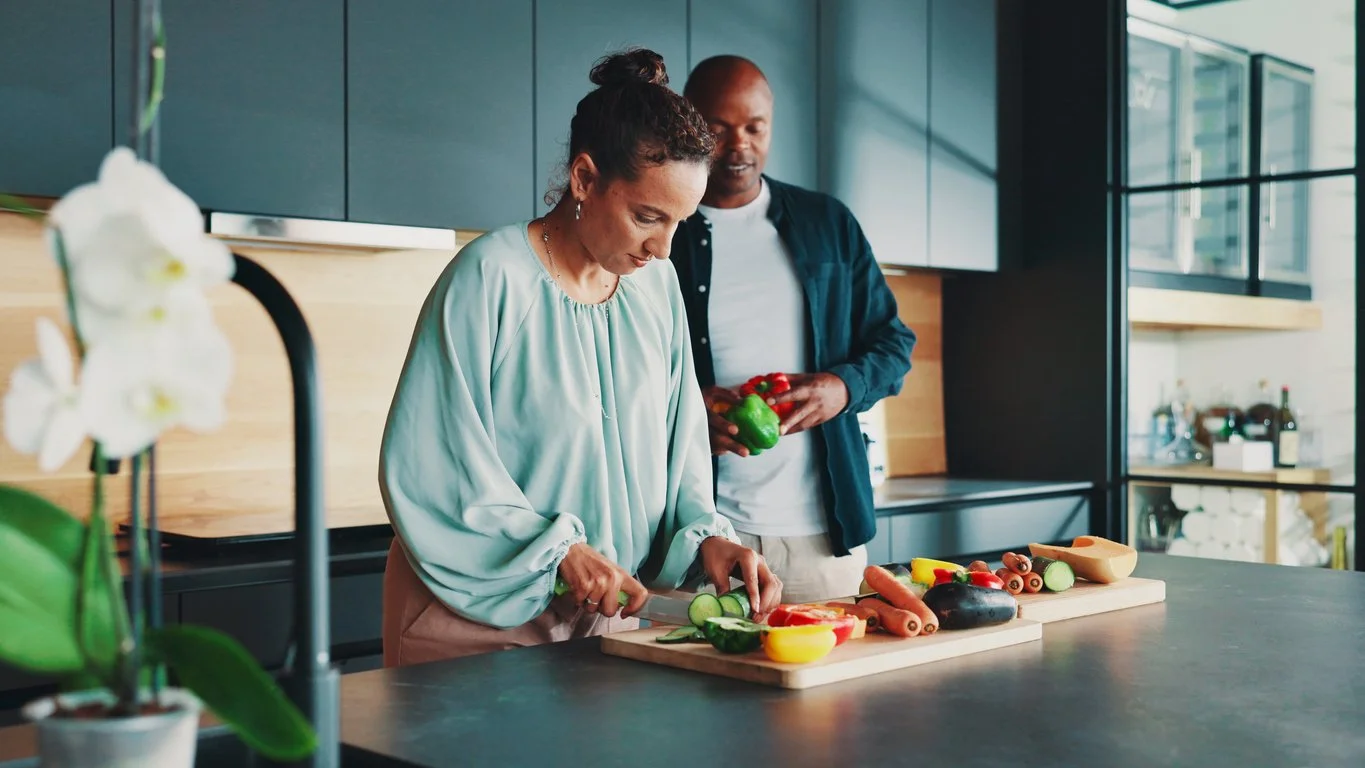Putting Mindful Eating at the Heart of the Holidays
As the holidays approach, it’s not uncommon for our patients to start worrying about the impact that work parties, family celebrations and other holiday indulgences may have on their progress toward long-term health goals.
Fortunately, there are plenty of strategies that we can use to keep things on track. Here are some of our favorites:
Reframe Your Mindset
Holidays are just that: Holidays. And as such, we should be kind to ourselves about if and when we deviate from our usual routines or plans. Heading to a Thanksgiving feast? Remind yourself: It is only one day, and only one meal. Remove the guilt and aim for a judgement-free holiday.
Allow Yourself Pleasure
We can eat for nourishment, we can eat for pleasure, and we can also eat for both. Accept that pleasure is an important part of why we eat—especially during the holidays. By giving yourself permission to enjoy yourself, you can let go of notions like abstinence—which too often lead to unhelpful cycles of indulgence and restriction.
Shift the Focus
Remember to celebrate non-food aspects of the holiday—creating traditions like a gratitude jar can move the focus away from eating as the central activity.
Plan Ahead
If you are trying to stick to a dietary plan or prescription, plan ahead. Eat a substantial, healthy breakfast. It’s also a good idea to think through in advance what indulgences you most look forward to—and find ways to intentionally include those in your celebration. Consider sacrificing other holiday foods you’re less excited about and be sure to also include lots of delicious vegetable dishes in the mix.
Pay Attention to Your Body
Studies have shown that we tend to eat significantly more food when we are eating together, versus eating alone. That’s why it can be helpful to intentionally check-in with your body and how you are feeling, rather than getting carried away with what those around you are doing. One mindful eating strategy that has proven effective is to aim to stop when you feel 80% full—and then pause, rather than keeping on indulging. You could even fix yourself a plate of leftovers for tomorrow, rather than going back for seconds.
Prioritize Sleep & Movement
Sleep is central to wellbeing, yet it can be hard to come by in the midst of a hectic holiday. Plan your celebrations so you don’t sacrifice sleep—eating at least three hours before bedtime, and being mindful of both caffeine and alcohol intake. (Gratitude journaling or other practices can also enhance sleep.)
It’s also a good idea to incorporate some moderate, enjoyable movement—a family hike or after dinner stroll can help shift the focus of the celebrations, create opportunities for bonding and conversation, and also avoid everyone slumping in front of the TV!
References
Helen K. Ruddock et al. “A systematic review and meta-analysis of the social facilitation of eating,” American Journal of Clinical Nutrition, 2019.
Alex M. Wood et al. “Gratitude influences sleep through the mechanism of pre-sleep cognitions,” Journal of Psychosomatic Research, 2009.
What would you like help with?
Weight Loss and Weight Maintenance
Blood Glucose Management, Diabetes, Insulin Resistance, Hypertension, High Cholesterol, Thyroid Disease, Hormonal Health
Polycystic Ovarian Syndrome (PCOS), Perimenopause/Menopause





